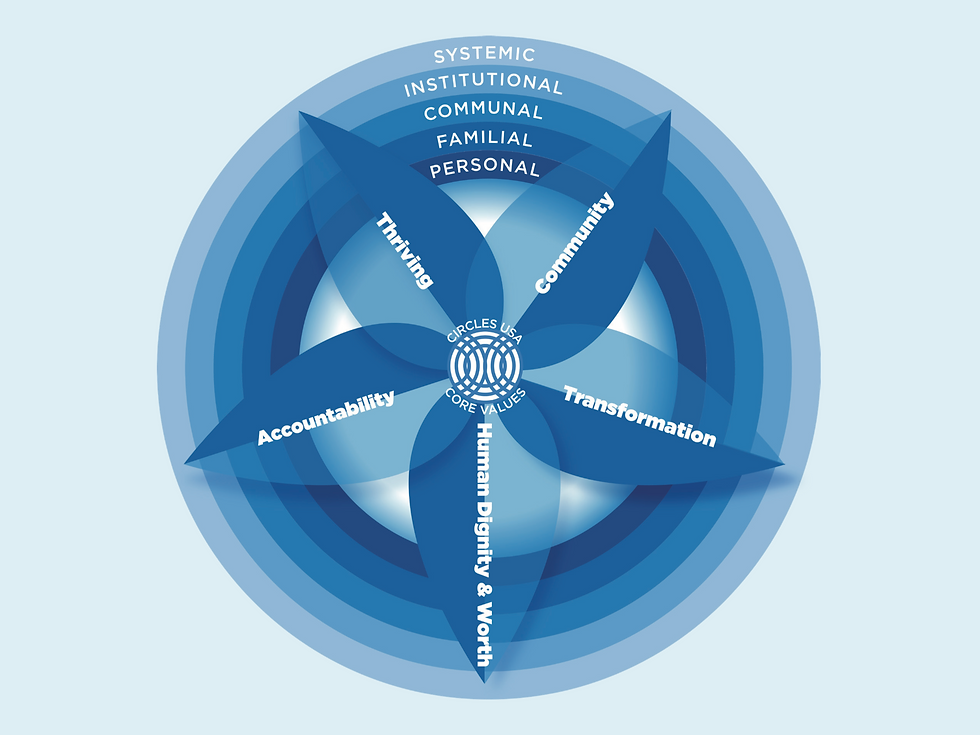READ NOW: New Research Paper Highlights CUSA Program Successes
- Feb 5, 2024
- 2 min read
Updated: Sep 22, 2024
 |  |  |  |
Justin Denny | Brain Garvey | Abia Sebaka | Lenie Nguyen |

In January of 2024, the University of Western Australia (UWA) published a new article, “Poverty Reduction and Determinants of Health,” in the academic Journal of Poverty. The paper, authored by Drs. Justin Denny, Brian Garvey, Lenie Nguyen & Abia Sebaka, “contributes to the small but growing body of literature on poverty reduction through peer mentorship programs.” The findings, the research team writes,
demonstrate the positive impact of the CUSA program on income gains for [Circle Leader]s who remained in the program for an extended period or possessed a protective blend of social and demographic factors that allowed them to benefit most from program participation.
In 2020, public health professional students Sebaka and Nguyen, along with Denny (an Associate Professor at the University of Western Australia), analyzed multiple years of Circles USA data and found significant income growth for participants. The researchers’ analysis compared characteristics of Circles Leaders against gains in economic progress after the completion of the 12-week class in order to inform future strategic planning efforts by Circles USA.
During both rounds of analysis, the UWA team reviewed almost 10,000 records of Circle Leader data from over multiple years, finding that the majority of Circle Leaders who stay in the program for at least 18 months show significant gains in mean income, with:
12.8% of Circle Leaders reaching 200% of the Federal Poverty Guideline;
32.6% of Circle Leaders doubling their income; and
70% of Circle Leaders who stay in the program for at least 18 months showing significant gains in mean income.
Now the UWA research team, along with Garvey (an Associate Professor in the Department of Family Medicine, Oregon Health & Science University), has synthesized this data into a new resource for academic and independent sector workers in poverty alleviation.
The students previously analyzed our data to locate opportunities for Circles USA leadership to conduct continuous quality improvement analysis “in order to identify subpopulations which may require additional support to achieve desired goals.”
In “Poverty Reduction,” they conclude that “[d]espite significant research efforts and focused interventions at the local, national and global scale, the reduction of poverty remains a critical challenge for societies.” They continue:
Our study …revealed certain factors that negatively impacted the [Circle Leaders]’ ability to achieve significant income gains. Participants who experienced generational poverty, those with children, and those who self-identify as Black/African American/African or male all faced greater challenges in attaining target income levels. This finding highlights the complexity of poverty, the enduring legacy of poverty and racism, and suggests that additional support and tailored interventions may be necessary for individuals facing multiple layers of disadvantage.
As Circles USA enters our 26th year of building community to end poverty, our leadership will use the UWA study findings to inform strategic planning and improvements to our model and materials that better support Circle Leaders and other participants who are working towards social and economic justice in our 78+ chapter network.
To learn more about how Circles USA is leveraging qualitative and quantitative research to support our poverty alleviation work, visit the Case Studies and Impact Report pages at www.circlesusa.org.
25 Years Strong, 25 States Wide! To support Circles USA, visit our donation page today.





Comments